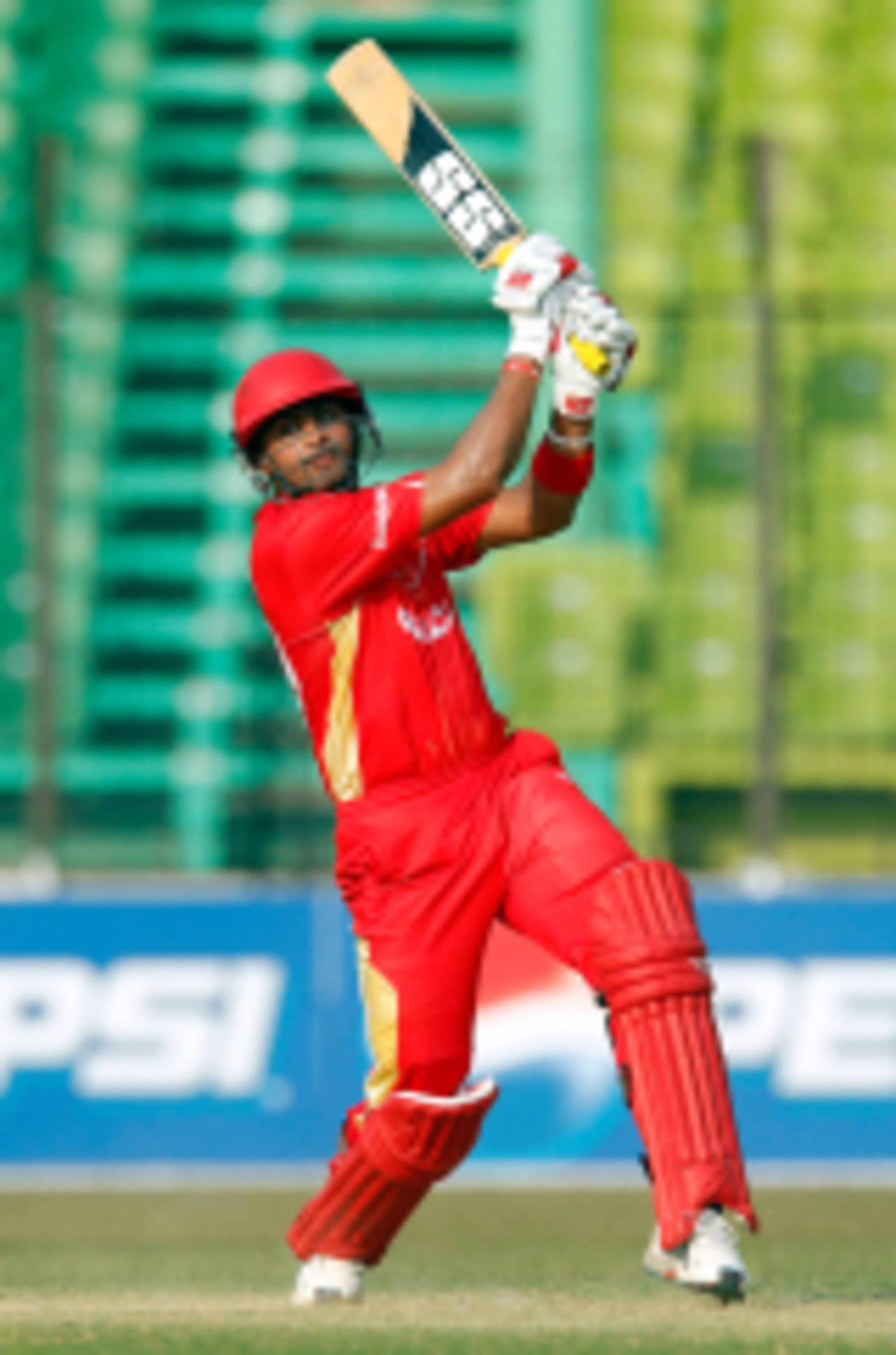Players and coaches round on ICC Associates decision
Dissent and criticism of the ICC's decision to cull Associate nations from the 2015 World Cup intensified further on the opening day of the current tournament
Osman Samiuddin in Hambantota
Feb 19, 2011, 5:47 PM

Rizwan Cheema is one of a number of playing lining up to condemn the ICC's decision • Associated Press
Dissent and criticism of the ICC's decision to cull Associate nations from
the 2015 World Cup intensified further on the opening day of the current
tournament. Grant Flower, Zimbabwe's batting coach, and Canada's captain
Ashish Bagai added their voices to a growing chorus of dissatisfaction
that has, if not overshadowed the opening days, then dampened a little the
celebratory nature of the occasion.
Already a number of Associate countries, foremost among them Kenya's chief
executive Tom Sears, have hit out at the ICC's reaffirmation on Friday of
a decision taken in October last year. Afghanistan and Netherlands have
also weighed in: "Our players are always motivated but those comments were
disappointing," Netherlands team manager Ed van Nierop told AFP.
"I can't see what it does for the global element of the competition by
going back down to 10 teams. I guess the proposals for the Twenty20 are a
bit of a bonus but the World Cup is still the premier ICC tournament."
Notably, Graeme Swann also chipped in, saying the decision had taken the
'world' out of the World Cup.
But on Saturday came the most articulate and extensive questioning from
Bagai, ahead of his side's game against Sri Lanka in Hambantota. "The
World Cup should involve as much of the world as you possibly can," he
said. "It's a shame and very disappointing for players like us who were
looking for opportunities to play against the best in the world. That's
the only way to improve as cricketers, as nations. It's really going to
hold back the growth of the game. If they want to keep it to 10 teams,
which they want to do, that's fine, but it's never going to be a global
sport that way."
The trade-off, according to the ICC, is that more Associates will be
involved in the World Twenty20: the next edition will have 16 teams now,
but they have yet to decide how the final ten teams will be selected for
the next 50-over world tournament. The recommendation to cut down
Associates' participation, incidentally, was reached at the ICC's board
meeting in October by a working party made up of David Collier (England),
James Sutherland (Australia) and N Srinivasan (India) with no Associate
representation, and only Dave Richardson of the ICC.
But the increased T20 participation doesn't tally with the efforts of
Associate nations to ultimately push for Test status, the format, Bagai
arguing, not ideal for that purpose. "You can see where the ICC is headed
and the direction they think cricket is going. It might be a commercial
move because T20 sells the best globally. I don't think it's going to help
many countries produce top level Test cricketers."
Flower said the decision was a step "backwards", arguing that smaller
countries need more exposure, not less, an argument echoed by Bagai. "It's
a big challenge to get these games every four years," he said. "By the
time we're used to playing these teams the World Cup is over. The only way
to play well against them is to keep playing them repeatedly. The boards
of the top Associates have asked for more games throughout the four years
so we can get some practice against some good quality opposition during
the years outside the World Cup."
This is the fourth time Canada - one of four associate teams in this
tournament - is participating in the game's showpiece event and the third
in succession since 2003. Though they only have a win over Bangladesh to
show for that time Bagai believes the country's cricket has built an
identity and homegrown base of players that deserves to be showcased more
often.
"[The Sahara Cup games between India and Pakistan] did inspire a lot of
people in the country," he said. "Back in 2000 we had a lot of new joiners
and infrastructure development at that time tremendously helped us.
Tournaments like that are always helpful for smaller countries to generate
interest and get media involved and generate revenues, which is very
important for us. More of those are needed."
On Friday, their Sri Lankan coach Pubudu Dassanayake said the move was a
"severe setback". Rizwan Cheema, one of their key players, said the
50-over game was a must for development. "If you want to look at it from
another perspective, you have to have competition and give small teams an
idea to play against big teams and increase confidence. Otherwise cricket
will stay in nine countries. We all aim for Test status because cricket
really changes when you get to that level," he told ESPNcricinfo. "It's
not a good feeling, because at Associate level we haven't really got
anything else to play against big teams."
The most memorable recent Associate performances in the tournament include
Kenya's semi-final run in 2003 and Ireland's performances in the 2007
edition.
Osman Samiuddin is Pakistan editor of ESPNcricinfo